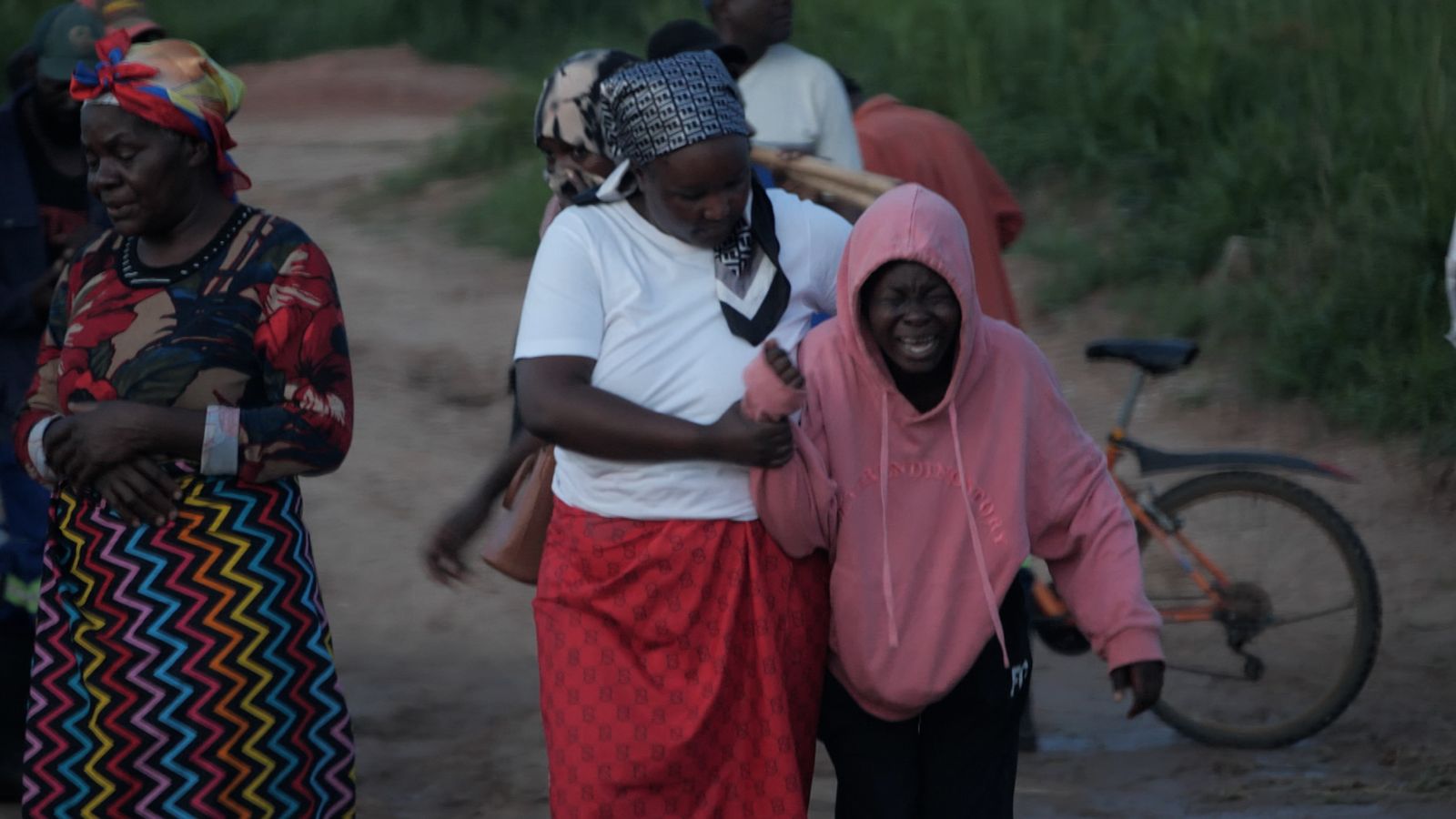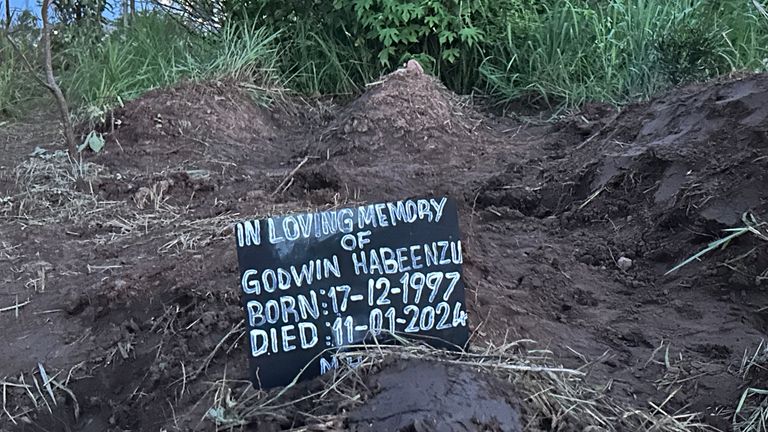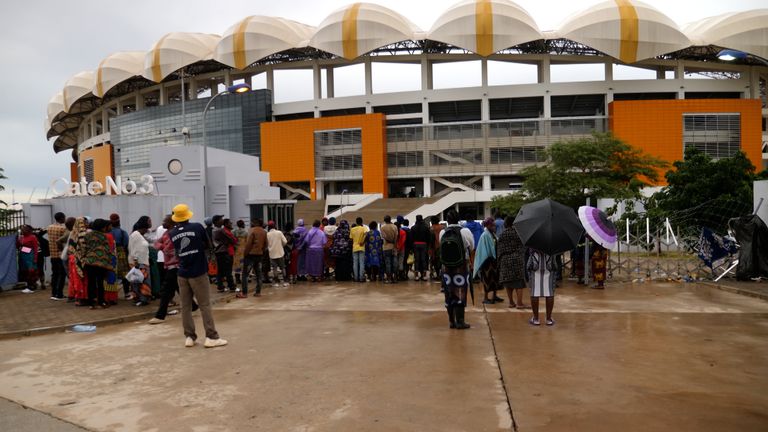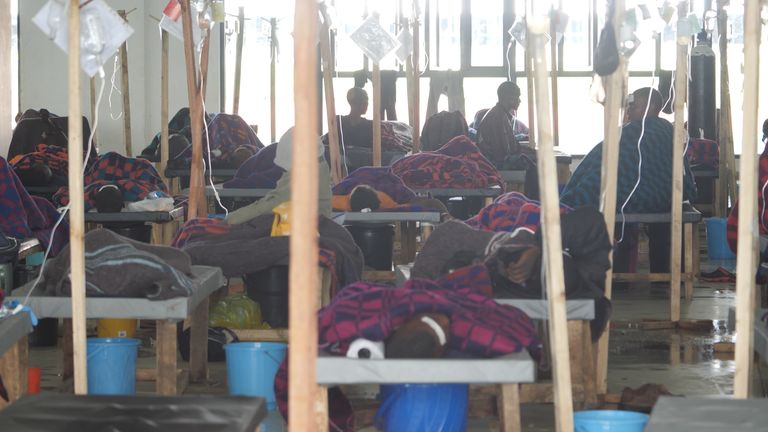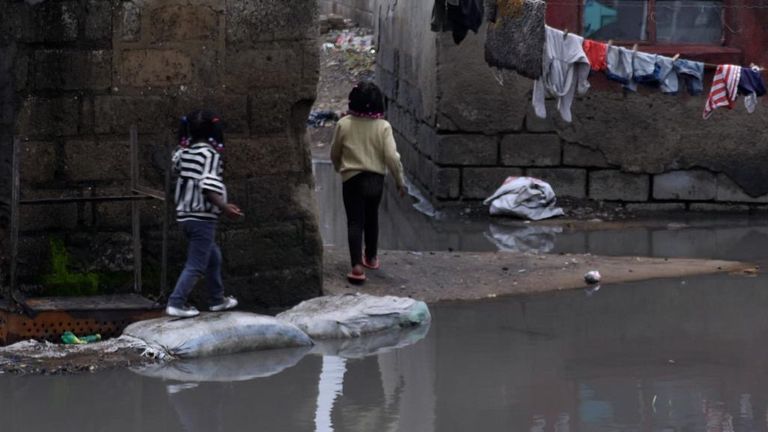Zambia is dealing with one of its worst cholera outbreaks in recent years as nearly 10,000 active cases have been registered.
Climate change has fuelled heavy rains which have contaminated drinking water in overpopulated and impoverished urban areas, mostly in the capital Lusaka.
Health workers are scrambling to contain a crisis that has the potential to be the worst the country has seen since the first outbreak in 1977.
The sound of crying cuts through the humid air as soil is hastily dug out by a uniformed worker and flung to the side. Among the clutches of tall grass is a burial site with clustered and shallow individual allotments – only marginally better than a mass grave.
The screams of grief are coming from 16-year-old Catherine. Her grandmother Tamara Lungu’s coffin is in one of the new mounds in the soft ground. Tamara was the matriarch of the family at 84 – both Catherine’s guardian and under her care.
She died of cholera in Zambia‘s Heroes National Stadium on 10 January and the family was informed two days later.
Her other older grandchild Nable Nyirongo stands at her grave. It is marked with tree branches so that he and his cousins can find it amongst the many other fresh graves when they come back to place a signpost. They will not be allowed to have a funeral.
On top of the grief, there is palpable disappointment.
“There’s nothing we can do. At least they have to respect the bodies, I think they’re not giving us respect,” says 50-year-old Nable.
Beyond the graves, Heroes National Stadium can be seen in the distance. Nable was waiting there for days with worried relatives. He was in the front gardens of the stadium reeling from shock when we first met him.
“They told us that she is OK and we were transferred to the waiting room after. Now they are telling me that she’s dead. What is this? We are not happy with what is happening here,” he told us as he waited for his grandmother’s body to be placed in the coffin he purchased.
Other concerned relatives gather beyond the metal barriers of the stadium waiting for any news. A roll call of names is read out periodically to assure them that their infected loved ones are still alive.
One man is seething with anger and sitting on the edge of a dry storm water drain. He says his nephew’s name hasn’t been called out for days and all he wants to know is if he is dead or alive.
Next to him is 59-year-old Hamlet and his daughter Agnes. She says her ageing father has made five trips from out of town to check on her brother – his son.
They said they were taken in on Wednesday to see him and found him well. The next day, they went in to see him but couldn’t find him in any of the wards.
“We will feel better if they tell us whether he is dead or alive,” says Agnes. It is clear the lack of closure is beyond frustrating.
The health minister, Sylvia Masebo, is working on capacity and communication issues as the stadium increasingly becomes a focal treatment centre.
“When we started the first 48 hours it was a challenge. But we have stabilised now and have people who have been employed specifically just to deal with that issue of making sure that from six up to midnight they are looking at issues of families.”
We speak to the minister in the paediatric ward where infants as young as five months old are being treated for cholera.
There are buckets and IV drips by every bed. The floor is wet with bleach. Pained high-pitched cries ring out from corners of the room.
Many of these children come from the highly infected area of Kanyama and nearby districts.
Impoverished neighbourhoods full of flooded streets, shallow wells, pit latrines and open-air food stalls.
Read more:
10 most underreported humanitarian crises all in Africa for second year running
Mothers and guardians have been allowed in to sit at their bedsides on the orders of Health Minister Masebo.
The prohibition of funerals and family burials has remained in place. More emergency rules are being brought in by her ministry that will place health restrictions on public places like bars and open-air food markets.
I ask her how she predicts Zambians will respond to these measures.
“I think what is important is for us to do what needs to be done which we have not done as a country [for] many decades mainly because sometimes politicians we are scared to do what needs to be done, that which is right because you feel you will be unpopular.”
